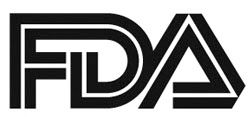FDA Approval Sought for sBLAs for New Pembrolizumab Dosing Schedule
The FDA has accepted 6 supplemental Biologics License Applications (sBLAs) for review for a potential update to the dosing schedule for pembrolizumab across several indications.

The FDA has accepted 6 supplemental Biologics License Applications (sBLAs) for review for a potential update to the dosing schedule for pembrolizumab (Keytruda) across several indications.1
The sBLAs are seeking to include an every-6-weeks dosing schedule option for 400 mg of pembrolizumab infused over 30 minutes for patients with melanoma, classical Hodgkin lymphoma, primary mediastinal large B-cell lymphoma, gastric cancer, hepatocellular carcinoma, and Merkel cell carcinoma. The agency has set a target action date of February 18, 2020.
“We are committed to improving cancer care, which includes identifying ways to ensure patients have a flexible dosing option that may reduce the amount of time they spend receiving treatment,” Scot Ebbinghaus, MD, vice president, clinical research, Merck Research Laboratories, said in a statement. “If approved, the 6-week dosing schedule will provide physicians and patients with greater flexibility in their treatment plans across a variety of cancer types, including melanoma where Keytruda is indicated in both the adjuvant and metastatic settings. We look forward to working with the FDA to file additional Keytruda dosing sBLAs later this year.”
The European Commission approved this dosing schedule in the European Union on March 28, 2019, for all of the PD-1 inhibitor’s monotherapy indications, including nonsmall cell lung cancer, head and neck squamous cell carcinoma, urothelial carcinoma, microsatellite instability–high or mismatch repair deficient solid tumors, and cervical cancer.
Pembrolizumab is currently approved in the United States for many indications at a dose of either 200 mg or 2 mg/kg every 3 weeks infused over 30 minutes. If the newer schedule was approved as an additional dosing option for patients, it would apply for the following indications:
- Patients with unresectable or metastatic melanoma;
- Adjuvant treatment of patients with melanoma with involvement of lymph node(s) following complete resection;
- Adult and pediatric patients with refractory classical Hodgkin lymphoma, or those who have relapsed after ≥3 prior lines of therapy;
- Adult and pediatric patients with refractory primary mediastinal large B-cell lymphoma, or who have relapsed following ≥2 lines of prior therapy;
- Patients with recurrent locally advanced or metastatic gastric or gastroesophageal junction adenocarcinoma whose tumors express PD-L1 (combined positive score ≥1);
- Patients with hepatocellular carcinoma who have been previously treated with sorafenib (Nexavar);
- Adult and pediatric patients with recurrent locally advanced or metastatic Merkel cell carcinoma.
A pharmacokinetics analysis of the 400 mg every-6-weeks dosing schedule tested safety and exposures compared with the approved doses.2The 400 mg every-6-weeks dosing regimen had similar predicted exposures to the 200 mg every-3-weeks regimen and clinical outcomes were expected to be similar with the newer schedule.
The geometric mean of the predicted peak concentrations at steady state for the 400 mg every-6-weeks regimen was about 65% lower than that of the 10 mg/kg every-2-weeks schedule.
Investigators expected the every-6-weeks schedule would produce similar efficacy, safety, and benefit-risk profile to the approved regimen with a more convenient schedule for patients.
References:
- FDA accepts Merck’s supplemental biologics license applications for KEYTRUDA® (pembrolizumab) six-week dosing schedule for melanoma and multiple other indications [news release]. Kenilworth, NJ: Merck; July 9, 2019. https://bit.ly/2xzRfnE. Accessed July 9, 2019.
- Lala M, Li M, Sinha V, et al. A six-weekly (Q6W) dosing schedule for pembrolizumab based on an exposure-response (E-R) evaluation using modeling and simulation.J Clin Oncol.2018;36(suppl 15; abstr 306. doi: 10.1200/JCO.2018.36.15_suppl.3062.








